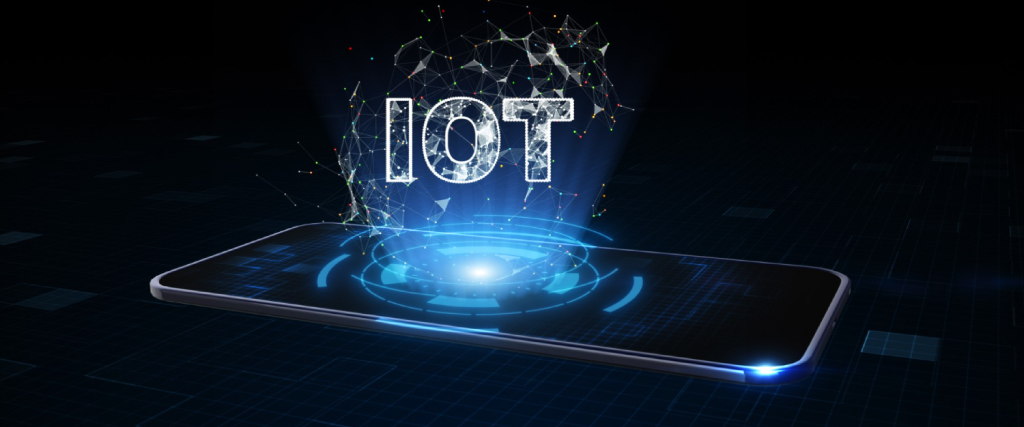Internet of Things (IoT): There was a time when we were fascinated by science fiction movies, books, web series, etc. No surprise, today we breathe science in every waking moment of our lives. Technology is evolving at an unprecedented rate and there's no looking back.
Back then, when computers were first introduced, they could only function based on user insights or commands. But today's technology has helped them overcome this limitation.
Using the Internet of Things (IoT) systems began sensing and interpreting data without human involvement. Advancements like voice-activated shopping, social commerce, wearable devices, connected cars are already shaping the future of digital marketing.
Saying the Internet is growing at an unpredictable pace is an understatement. Smart devices have flooded our homes, workplaces to a point that they've become an essential part of our lives.
Today we are surrounded by top-notch technology that is able to process a large amount of data and translate it into useful information.
Generally, we can introduce sensors and internet connectivity to all objects. But what makes these objects 'smart' is the ability to translate and interpret raw data in a way that is useful to humans.
IoT is expected to produce huge piles of data from various objects and aggregate them within no time. IoT is bound to bring a revolutionary change in manufacturing and logistics by correlating production and marketing with consumer consumption patterns.
Before addressing the business benefits that one gets to leverage using IoT, let's glance at how it is affecting our lives.
Healthcare:
Smartwatches and even smart implants are widely used these days. Such devices can be programmed to monitor one's health and transmit data to an application, making it available to you and your doctor.
The doctor can thereby examine the patient's health virtually. Any alerts for dangerous events can be automatically sent to the ambulance system and the patient's cellular device offers invaluable remote assistance to them. Internet of Things (IoT) promises optimized, fine-tuned treatments, real-time health monitoring, and instant first-aid services.
Home automation: Internet of Things (IoT)
Homes are turning smarter and smarter with every passing day. From smart locks on our front doors, smart meters to voice-activated garage systems, and from self-watering to self-mowing lawns, we've our homes screeching 'smart'. But these are clearly a few of many things that IoT is capable of. The day is not far when our refrigerators could tell us when we're running out of supplies.
City Automation: Internet of Things (IoT)
We are in the process of perfecting automatic cars, exchanging information with the neighboring vehicle on the roads. We already have systems that look into traffic and avoid jammed roads.
Transportation is not the only object of automation in our future cities. Like, there might be a future, where we might not worry about bills. Smart sensors can send data to utility providers, who in turn can charge my account without even printing a bill. After all, that's what emails are for.
Ultimately, IoT can be defined as, the formation of a system of systems, that constantly and autonomously gathers, indexes, and processes information according to evolving protocols and algorithms.
The future of Digital Marketing
There is a huge impact of IoT on the business sector because not only has it changed the methods of different business operations, but also the way data is exchanged and collected.
Data Sharing and Perception
All organizations function and grow based on data collection and exchange, the introduction of this technology has completely altered how data is managed and handled. Apart from offering greater access to consumer data, IoT devices track and record patterns of how the consumer interacts with various devices.
This makes the devices smarter and allows them to offer an enhanced user experience. Businesses use data to study consumer requirements. The scope for innovative inventions and improvements in the previous inventions and methods of advertising & marketing can be easily determined based on the data.
Productivity and Efficiency
With more information about the end-user and the market, the productivity of all businesses can be increased notably. IoT devices can be connected to each other and controlled to improve efficiency, which will have a direct impact on the productivity of the organization.
Remote Work
With this technology, employees need not be physically present at their workplace to handle work. You can connect and work remotely, and studies suggest that remote workers are more enthusiastic and more productive, which will significantly improve your business functions.
Conclusion:
IoT is starting to impact search engines, SEO, and web content, as search strings are turning towards natural conversational speech.
The ultimate aim of smart technology is to move towards user efficiency and convenience. Many consumers choose to download applications, which gives them access to offers in exchange for the company collecting their response data for future use.
Digital marketers must keep up with IoT solutions to remain competitive in the sector. Developing relationships with end-users based on their data has proven to be a powerful way to gain potential consumers.
Though IoT holds great promises, it also tags along with significant concerns. Nevertheless, with the emerging trends, we would be able to overcome those. In the end, IoT will continue to thrive because of the endless benefits it brings to the various segments of the business.
Read More:
TOP INTERNET OF THINGS (IOT) TRENDS IN 2020-2021

